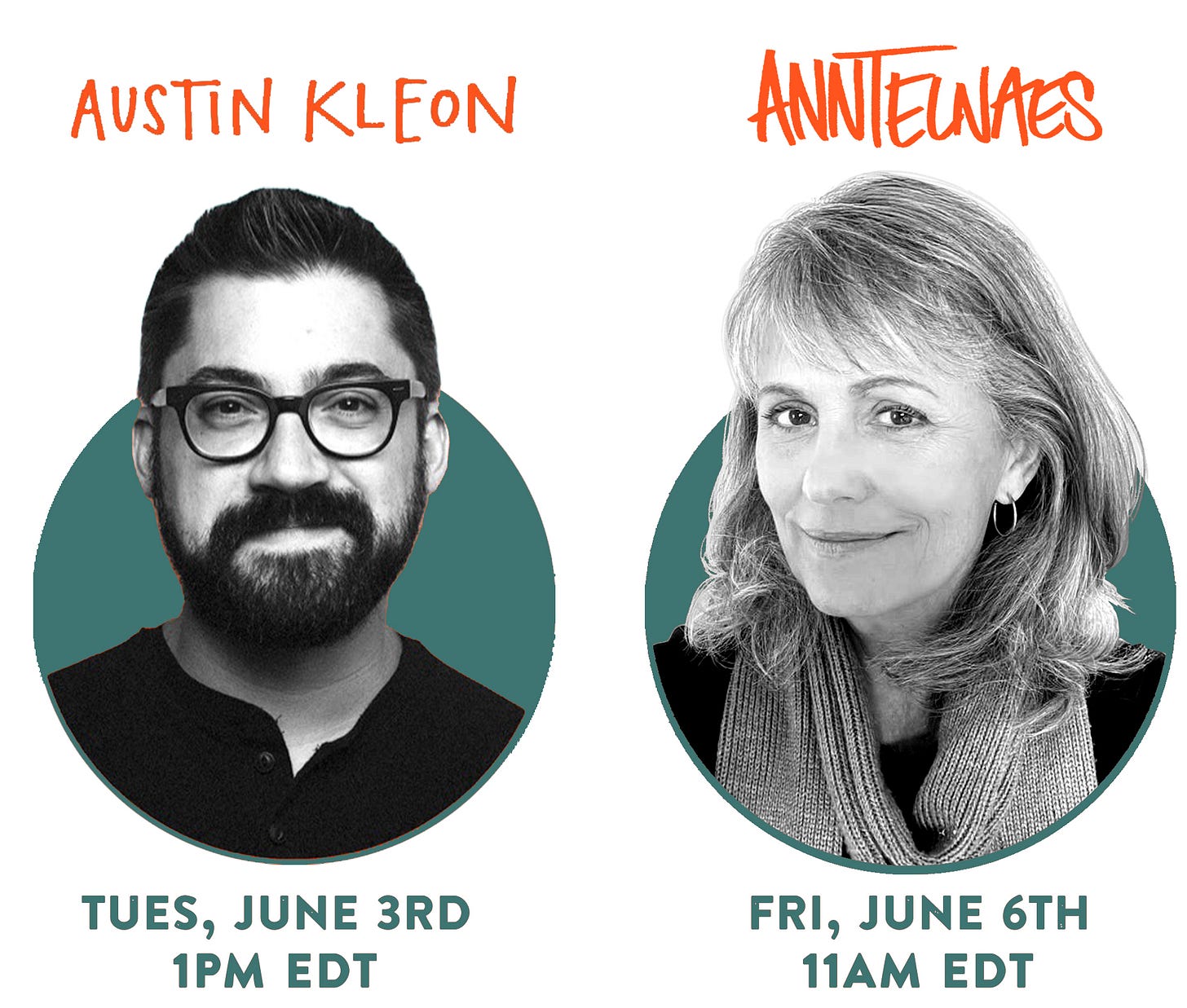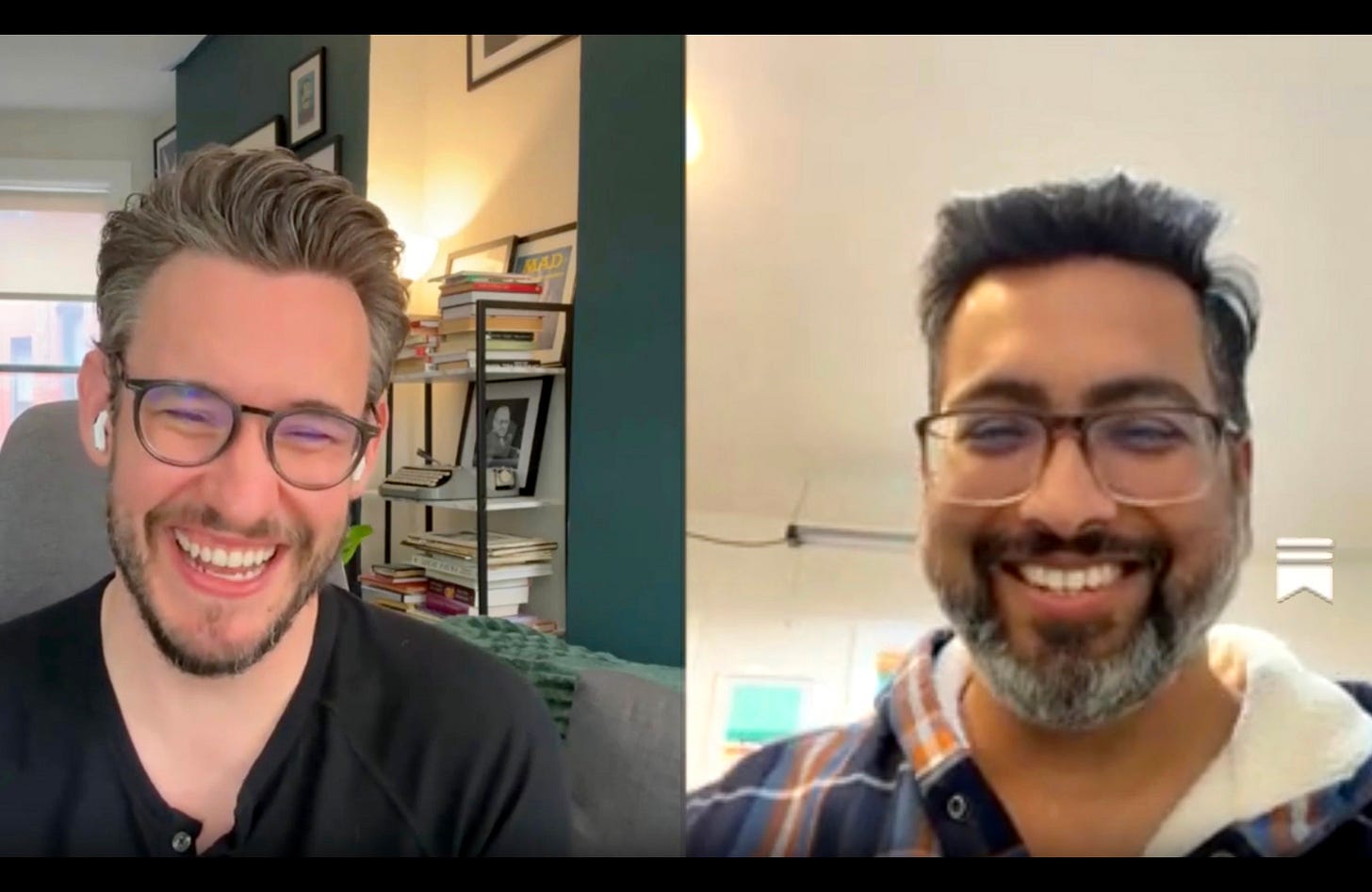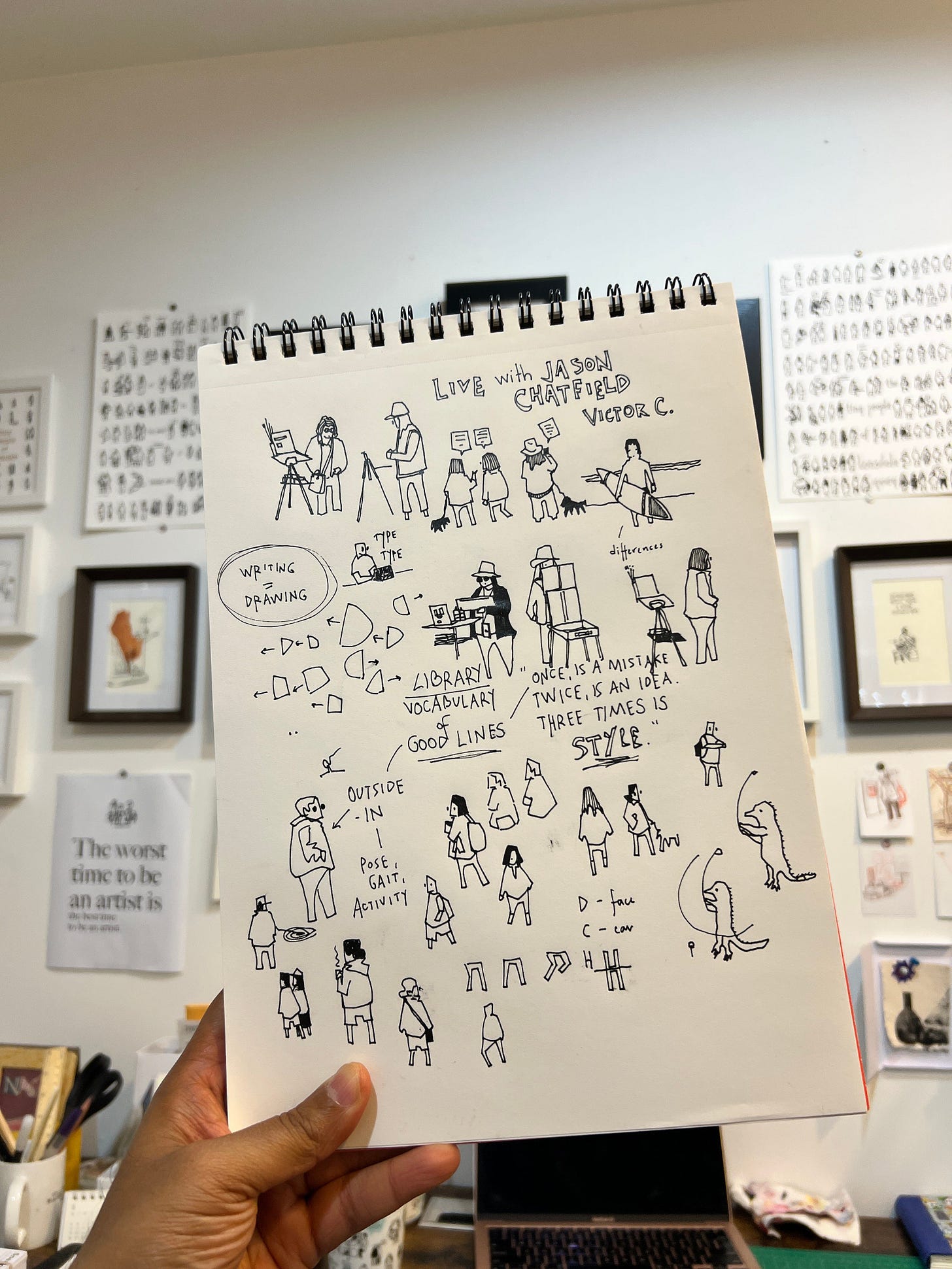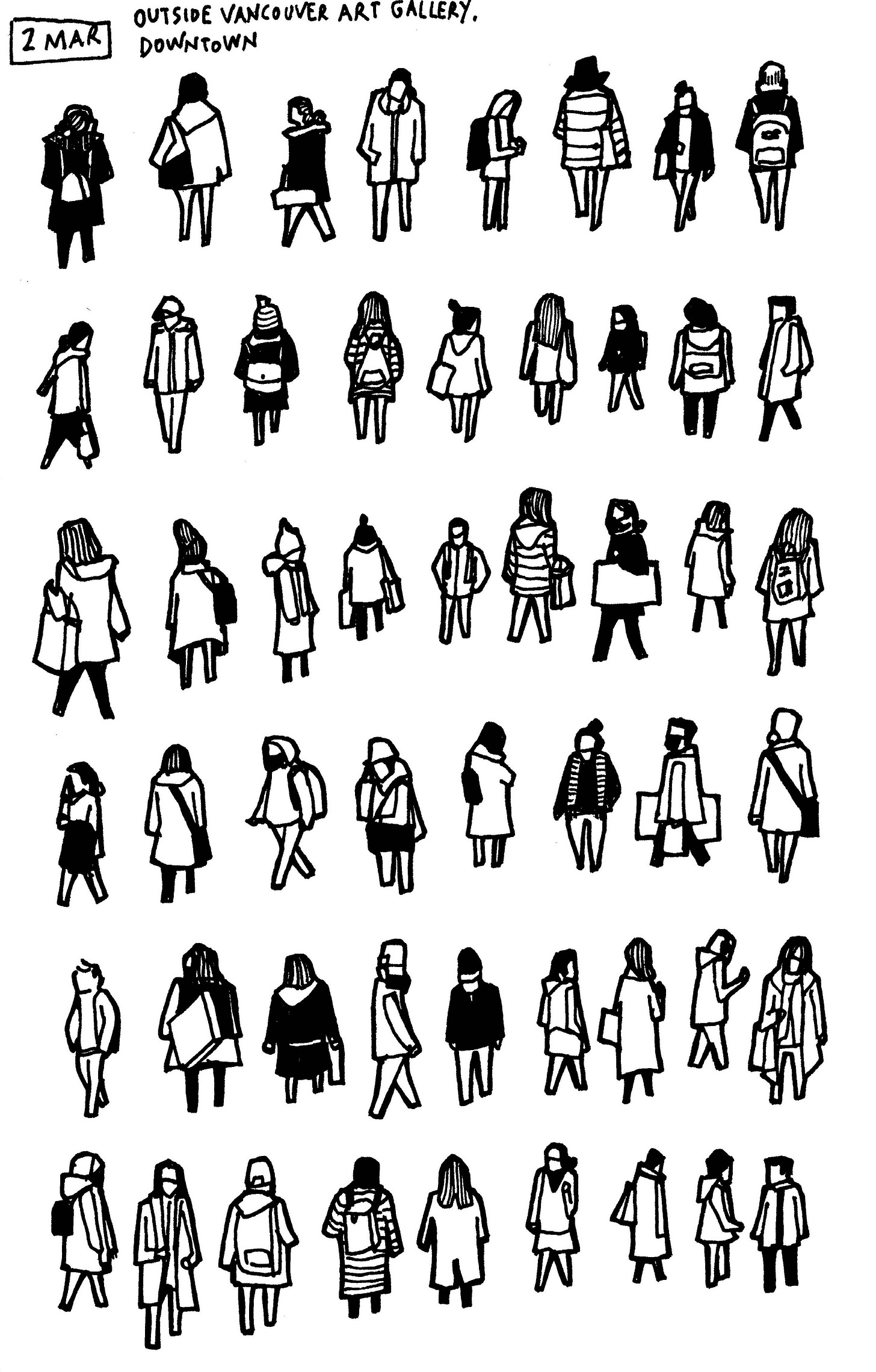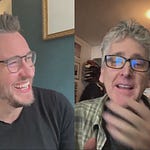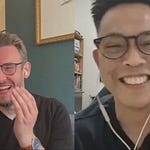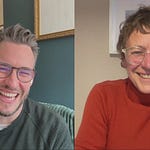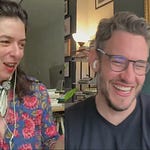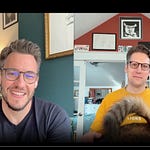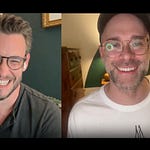Thank you to those of you who tuned in to my live stream with Nishant Jain! If you missed it live, I hope you enjoy the replay above.
Join me next Tuesday & Friday for my next TWO live episodes with Best-selling Author and Artist Austin Kleon & Two-Time Pulitzer Prize-winning Cartoonist, Ann Telnaes.
Tiny People, Big Ideas: My Drawing Lesson with Nishant Jain
Yesterday, I had the pleasure of talking with my friend Nishant Jain, the brilliant mind behind The SneakyArt Post, and honestly, my tiny nugget of a brain is still processing everything I saw and heard. He does this to me every time we talk. What started as me asking for help with drawing his signature "tiny people" turned into a masterclass in observation, creativity, and why sometimes the best art happens when you're trying not to be noticed.
Related Reading
From Neuroscience to Sneaky Art
Nishant's journey to becoming an artist is particularly circuitous. He was halfway through a PhD in neuroscience (we’ve all be there) when he quit to become a writer, inspired by —and I love this— a particularly terrible stand-up comedian he kept seeing in Chicago. "He was awful, and he didn't get any laughs, but I would see him every night of the week. Every time I went to an open mic night, I would see him there." The persistence of this bombing comedian made Nishant realize: "What am I doing if I'm not being persistent in his way?"
Look, am I annoyed he saw me bomb so many times? No. But whatever, it led to bigger things for him. Naturally, he then quit science to write novels. (we’ve all been there) Then, almost immediately, he hit writer's block. Four times. Which led him to grab a pen and notebook and head to a café, where "sneaky art" was born out of pure frustration with words—he literally drew himself out of writer’s block.
The Philosophy of Tiny People
Here's where it gets even more interesting: Nishant's "tiny people" aren't tiny just because of scale —though they are ridiculously small. As he explained, "What makes them tiny is that they are observations of a few seconds. And as a result, they are very heavily filtered. There's just no time or scope for me to draw everything about them."
The filtering is the point. These drawings capture how we actually experience most people in our daily lives— fleeting impressions on buses, in cafés, walking past a window. "We notice heels, we notice clothes, maybe we notice somebody's hairstyle or something they said, but we don't remember everything."
Some key insights we covered:
Writing = Drawing: "Both writing and drawing are about putting together lines and shapes to give meaning to things." He breaks down faces into the letter D, ears into the letter C, and legs into half of the letter H. Suddenly, drawing feels less like some mystical skill and more like... well, writing.
Outside in, not inside out: Instead of getting caught up in facial features first, Nishant starts with the ear and works outward to capture posture and movement. "From the ear, I can go up and I can do the scalp and I can go down, and I can do the jaw." This way, even if someone moves, you've already captured what matters most.
Trust your line: This might have been the most important lesson. "When I make a long, continuous line, it has my blood pressure in it. It has my heartbeat in it. It has my nervousness in it. It is a very unique thing that only I could do in that way." Don't hedge, don't hem and haw - commit to the line.
The Miles Davis Principle
Nishant shared a quote from Miles Davis that I love, and perfectly captures the evolution from accident to intention that every artist goes through. I had this quote taped above my desk for years, so hearing someone else reference it felt like finding a kindred spirit.
"Once is a mistake.
Twice is an idea.
Three times is style."
On Permission & Authenticity
One of the more profound moments came when we discussed artistic permission. Nishant noted how "We think that we shouldn't need permission, but that's why we have other people in our world— we need permission from each other to live our lives." Every time an artist shares their work, they're potentially giving someone else permission to try.
This connects to his broader point about artistic authenticity:
"Art is just human expression, and everybody should be doing it. But because we get hung up on it needing to look a particular way —It needs to look so good or it's not worth it— We keep denying ourselves this beautiful thing that is accessible to all of us."
The Sneaky Art Advantage
What I love about Nishant's approach is how it solves multiple problems at once: By drawing quickly and "sneakily," you avoid the paralysis of perfectionism. By focusing on fleeting observations, you develop a more present, mindful way of moving through the world. And by working small, you build what he calls "a vocabulary or a library of good lines" without the pressure of creating masterpieces.
Plus, there's something beautifully democratic about it. You don't need an easel or perfect lighting or even conventional artistic "talent" - you just need curiosity about the people around you.
"The worst time to be an artist is the best time to be an artist."
There's something both sobering and inspiring about the quote above that he heard from a comedian friend— a reminder that creating authentic work has always been challenging, but perhaps that's exactly what makes it valuable. I guess we’ll find out in these coming years.
As someone who spent way too much time trying to draw an iguana playing golf using Nishant's techniques (thanks for the request, Hue Walker), I can now say his approach just works. It strips away the intimidation factor and gets you focused on the joy of observation itself.
If you're looking for a different way to see the world, or just want to follow along with some of the most thoughtful writing about creativity and observation, I highly recommend subscribing to The Sneaky Art Post. Nishant has a course on drawing tiny people, and his book "Make Sneaky Art" comes out in September. His work reminds us that sometimes the most profound art happens not when we're trying to impress others, but when we're simply paying attention to the world around us.
’til next time,
Your Pal




